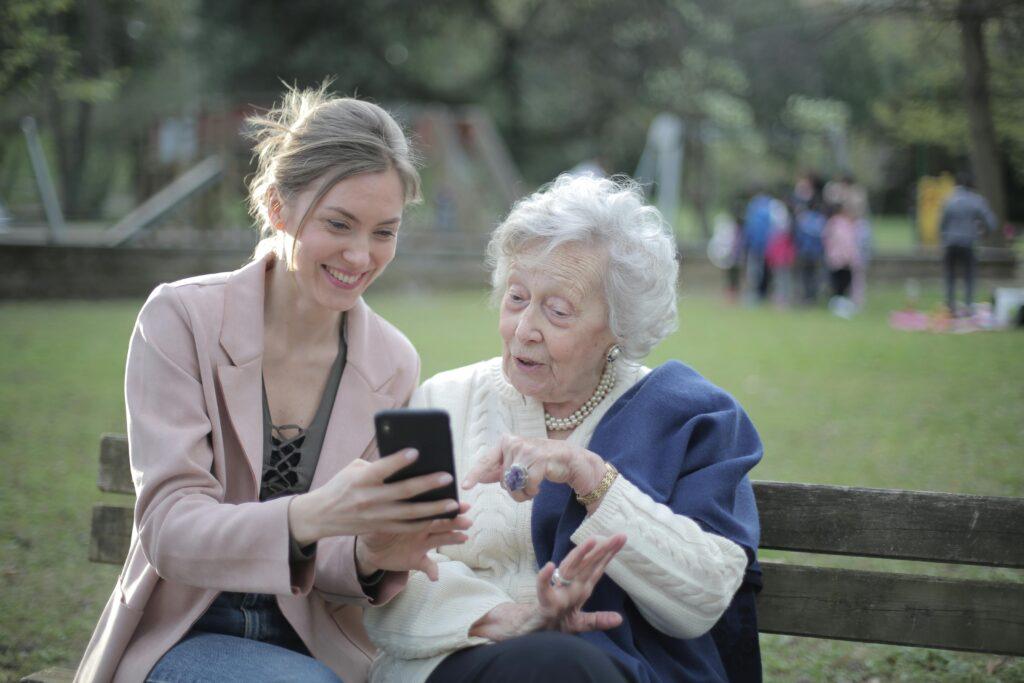How To Avoid Burnout As A Primary Caregiver

Women often take on the bulk of family caregiving responsibilities, and that doesn’t just apply to caring for children. An estimated 66% of primary caregivers for aging relatives are women. Women also provide 50% more care than men do.
Although you want to make sure that your loved ones receive the best care possible, helping them handle their medical, emotional, financial and legal needs can be stressful, as you’re balancing your own personal well-being and career. Here are some steps that can help you reduce burnout:
Don’t be afraid to ask for help.

It’s important to lean on friends, family, and community as you’re juggling your various responsibilities. It can be hard to ask for help, but some ways the National Institute on Aging suggests doing so are starting with small asks such as picking up groceries or asking someone based on their talents and strengths. For example, your lawyer friend might be able to give you advice for your family member’s legal needs or help you better understand language on important forms. You can also find local support groups for caregivers to find resources or talk with people who are having similar experiences.
Delegate responsibilities.
Asking for help for specific tasks can help ease the burden, but it’s important to recognize that you can delegate care responsibilities so that they do not fall 100% on you. Think about areas in which you can collaborate with other family members. Maybe you can help with finding a living facility and another family member can attend doctor’s appointments.
Set caregiving expectations among family members in order to create the care plan that’s most appropriate for your relative’s needs. If your family members cannot help, you can find external resources through organizations such as the National Alliance for Caregiving and The Family Caregiver Alliance.
Keep up with your own health.
Between attending meetings at work and driving your relative to doctor’s appointments, keeping up with your own health can seem impossible, but taking care of your health in small ways can both benefit your well-being and help you be a better caregiver, according to the National Institute on Aging.
You need to try and do what you can to destress (you can’t have your aging loved one on your mind the whole entire time every single second of the day). So it could help to look into a GPS tracker for elderly that works anywhere, so at least that gives you some peace of mind to tend to yourself.
Don’t have time to go to the gym every day? A short walk around the neighborhood can be a great way to get moving and enjoy some fresh air. Don’t have time to cook a healthy meal? You can find some pre-made meals that balance multiple food groups at your local grocery store. (And don’t beat yourself up if you stop at the McDonald’s drive thru on a day where you’re out of energy.)
Research your company’s benefits.

According to the Family Caregivers Alliance, 20% of women in the workforce are primary caregivers, and out of that group 29% have reported being passed up for a promotion, and 16% have left the workforce entirely. In addition, female caregivers have seen their paid work hours go down by 41%. However, you can find ways to reduce the impact on your career advances and finances by researching your company’s benefits.
Your company may have an Employee Assistance Program, which is often tied into your company’s health insurance plan. You may be able to access elder care providers, mental health services, legal services, and more.
If you need to take some off, take advantage of your company’s paid family leave policy (which doesn’t just apply to children!) In addition, the U.S. Department of Labor offers unpaid, yet job protected leave ranging from 12-26 weeks.
Talk to your manager about utilizing these programs and how you can fit your caregiving responsibilities with your career goals. Balancing caregiving and career growth can be tricky, but leaning on support from your work and your community can help you provide the best care for your family member and yourself.






